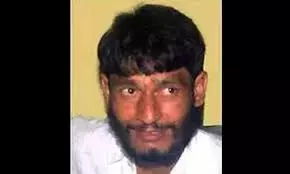Rohingya crisis: Myanmar trying to divide and rule, says Bangla envoy
Bangla envoy also accused Myanmar of ethnic cleansing of Rohingyas and said that policy was still continuing.;

New Delhi: Bangladesh high commissioner to India Syed Muazzem Ali accused Myanmar on Monday of attempting a divide and rule policy on Rohingyas (a majority of whom are Muslims) on the issue of alleged discovery of mass graves of murdered Hindu Rohingyas in Myanmar’s restive Rakhine province.
He also accused Myanmar of ethnic cleansing of Rohingyas and said that policy was still continuing. Bangladesh is having to deal with a major influx of Rohingyas who have fled or are still fleeing Myanmar. A major controversy had erupted recently when, according to reports, Myanmar had said that radical elements among the Rohingya Muslim population had murdered Rohingya Hindus and dumped their bodies in mass graves. With external affairs minister Sushma Swaraj expected to visit Bangladesh soon, the Rohingya crisis is expected to be discussed in detail during the visit. The Bangladeshi envoy, who had met foreign secretary S. Jaishankar in New Delhi a few weeks ago to discuss the Rohingya crisis, also expressed satisfaction that India had “updated” its position on the crisis.
Answering a question on Monday evening regarding the discovery of alleged mass burial sites of Rohingya Hindus in Rakhine, the Bangladesh high commissioner said, “The Myanmar side tried to do divide and rule (by claiming) that they (Rohingya Muslims) have killed Hindus.” He, however, did say that anyone found to have committed crimes must face the law.
Speaking about the Rohingya crisis, Mr Ali said there were about eight to nine lakh Rohingyas staying in Bangladesh now and warned that the pathetic condition of Rohingyas could make some of them vulnerable to radicalisation. “The problem which originated in Myanmar has to be resolved in Myanmar,” he said, adding, “Myanmar must stop the practice of ethnic cleansing. They (Myanmar) have not stopped practising it.”
Talking about a solution, Mr Ali said the whole crisis had arisen because of the “inability of the Myanmar authorities to recognise these people (Rohingyas) as their citizens”.



